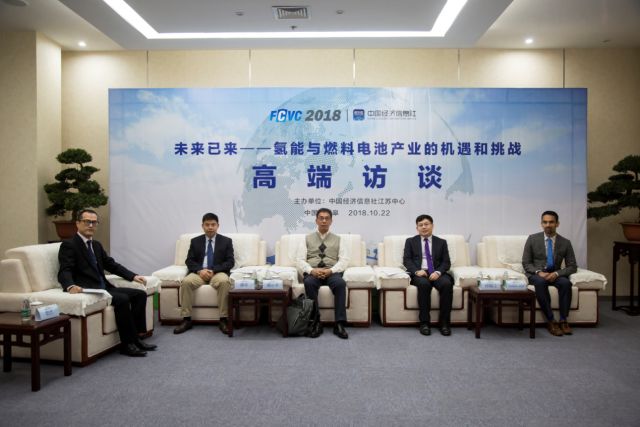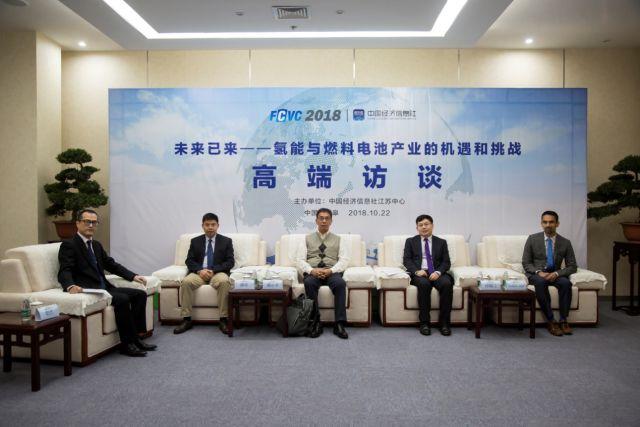
BEIJING, Oct. 25 (Xinhua) -- Insiders and experts attending the just held the 3rd International Hydrogen Fuel Cell Vehicle Congress (FCVC 2018) in Rugao of Jiangsu Province discussed the opportunities and challenges of the hydrogen fuel cell vehicles and they are optimistic about the prospects of the industry.
Hydrogen fuel cell vehicle is likely to be a key transportation tool by 2030, due to low carbon, abundant resources and high energy density of hydrogen energy, Sun Guojiang, general manager of precious metals marketing and business development, Anglo American Asia Pacific said during a discussion at the conference site of the 3rd International Hydrogen Fuel Cell Vehicle Congress (FCVC 2018) on Oct.22.
Recent years, the global hydrogen energy industry has seen stable growth, with relevant economic markets continuously booming. It is estimated that in the period of 2035-2050, China's hydrogen energy will reach the proportion of current oil in China's energy structure, Miao Ping, assistant president with National Institute of Clean-and Low-Carbon Energy said.
China will continue its efforts on exploiting core technology and equipment of hydrogen energy, accelerating the formulation of industrial standards, cultivating technical and management talents for infrastructure construction, Miao added.
In the following five years, China is likely to achieve leading levels in the construction of infrastructure construction, and manufacturing of some key equipment for the industry.
It is a more moderate way to promote the technology of hydrogen energy via bus and logistics vehicles in China, said Gao Xiaoping, technical director of a new energy company in Nantong, major city in east China's Jiangsu Province.
Kareem Afzal, vice president with PDC Machines said that it is very suitable for China to give priority to public transportation, because the public transportation routes are fixed, and construction of a small number of hydrogen refueling stations can support the commercial operation.
Thanks to the advantages of location, costs, industrial chain and infrastructure, Rugao City in east China’s Jiangsu Province should construct hydrogen refueling station supported by the local government, and attract leading internet and logistics enterprises, such as Alibaba Group, and JD.com to settle down, forming a new and healthy city with hydrogen energy, Miao said.
FCVC 2018 was held from October 23-25 in Rugao, which is jointly hosted by the International Hydrogen Fuel Cell Association and Society of Automotive Engineers of China under the guidance of the Ministry of Industry and Information and the China Association for Science and Technology. (Edited by Ma Xin, maxin11@xinhua.org)




 A single purchase
A single purchase









